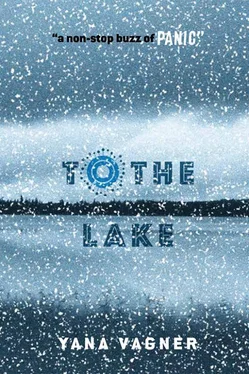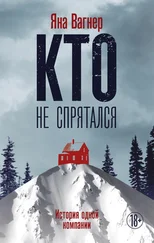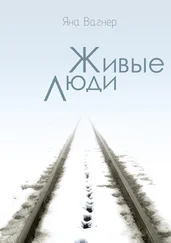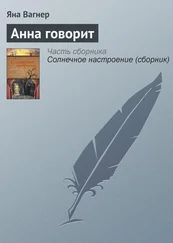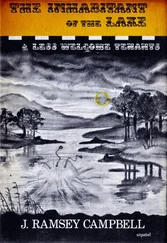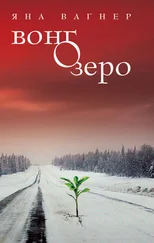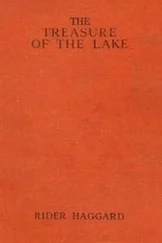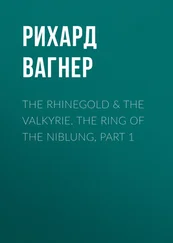I looked at him and felt tears welling up, which hadn’t flowed the whole day, since yesterday morning, when they were all sat here on the sofa (our honeymoon seashells in Dasha’s chubby mouth, Marina, still with perfect hair and with morning make-up on, Lenny, tapping his hand on the sofa). Suddenly they were rolling down my face – hot, abundant – but I didn’t even have time to sob, and nobody was looking at me anyway, because we all heard a car pulling up near our gate.
The next second was so intense that it could have lasted a minute. I saw Marina hug her daughter and sit down on the floor, crouching down; the rifle, which has just been propped up against the wall, like part of a set for a staged photograph, was in Boris’s hand, and he himself flew up the stairs to the window; Lenny disappeared into the kitchen and came out holding a knife. It became apparent in the light that the wide, dangerous blade was awkwardly covered in some kind of grease, as if somebody had been cutting ham for breakfast; I was the only person who hadn’t moved and I felt uneasy because I had no idea what exactly I needed to do – and at this moment Boris called from upstairs and said, in a relieved tone:
“The guys are back.”
For a while we were all busy parking the car in the driveway and unloading it – carrying big white rustling plastic bags, as if preparing for a grand family gathering. Sergey had brought in the last box and put it on the floor in the corridor. “Don’t take them any further,” said Boris, “leave them here, we’ll have to load them back into the car anyway.” Something clinked in the box, and Sergey said:
“We got almost everything, apart from petrol. There was a kilometre-long queue at the petrol station. We wanted to get home before dark. We’ll go again tomorrow.”
“That’s bad,” Boris said, “but you’re right, it’s not worth going now. We’ll have to wait till morning.”
“Oh it’s OK, Dad, we left a week for getting ready, and we’ve already got most things from the list – provisions, medicines – we only need petrol now. We’ll take our cans and nip out tomorrow. We’ll have to go round a few petrol stations as the guys in the queue were saying that they were rationing the petrol per customer. And the nearest guns and ammunition shop is in Krasnogorsk, and the other one’s in Volokolamsk, I think, but that’s not on our way, so perhaps we can buy some cartridges in Ryazan, near you?”
They came into the lounge. Sergey had a sheet of paper in his hand, covered on both sides with Boris’s compact writing. Mishka followed, with the keys to Sergey’s car. We hadn’t let him drive on a big road yet, but he went round the village as much as he liked and was pleased every time he got to drive the car into the driveway.
“We won’t buy anything there,” Boris said after a pause. “I doubt if we will find anything in Ryazan by the time we get there.”
Only now did Sergey raise his eyes from reading the list, looked around at us all and finally noticed Lenny’s bruised and swollen cheek, and the knife, which he was still gripping in his hand.
“What on earth has been happening here?” he asked after a pause, and Lenny, shy under his gaze, quickly put the knife down near his empty glass, and the blade clinked on the polished surface of the table. He wanted to say something, but Boris was first, and said what I’d been thinking since we came back to the house, but was afraid to say out loud:
“It’s not good, Sergey. We’ve had visitors. Judging by the vehicle they had and by their uniform, the units which patrolled the city have disbanded. They don’t have anyone to report to anymore, so they decided to do a bit of looting. We’re fine, don’t worry, it could have been worse,” he carried on, glancing at Lenny, “I hope I’m wrong, but in my view, this only means one thing: the city’s dead.”
Sergey sat down and his face became pensive, rather than worried.
“Damn!” he said, “I’m glad we didn’t venture out to Krasnogorsk, which is just outside the circular, that’s probably a right old mess there now.”
“So what’s up?” Lenny suddenly said, “what’s the plan? Are we going to hold the fort here? I see you loading up on food, cartridges, all this shit, that’s cool, only what’re we gonna do next time, when they come here in a tank?”
Sergey and Boris exchanged glances, and while they were thinking of a reply, I was looking at plump, loud Lenny, who had always irritated me with his banal remarks and his noisy laughter at his own jokes, his ability to fill any space with his presence and dominate in any company whether there were raised eyebrows and peeved faces or not. I surprised myself by saying:
“We can’t stay, Lenny, it’ll soon be a nightmare here. So we’re leaving, we’ve got almost everything we need, and I think you should come with us.”
“Sure,” Lenny said quickly. “Where you going?”
“My place in Levino is not an option, after all,” said Boris, with regret. “You’re twenty kilometres from the main road here, and look how quickly they got this far – I was hoping that all these elite villa communities on the New Riga road would keep them occupied for a bit longer. My village is quite a distance from Ryazan – but it’s only about six kilometres to the main road, we’d gain a couple of weeks max, and then they’d catch up with us. We need to find some dense forest, with nothing around. Wish we were in Siberia; it’s hard to find a place like that anywhere within reach, damn it.”
“Forest!” Sergey suddenly shouted and jumped up from his seat. “Of course, what an idiot I am. Anya, I know where we’re going.” He rushed out of the lounge and, after tripping over one of the rustling bags, which were piled in the corridor, disappeared through the study door. I could hear him, swearing under his breath, rummaging through the books. Something heavy fell with a thump, and in a moment he came out holding a book, which he plonked on the table, hurriedly pushing the glasses out of the way to one side. His face was alive, and all of us, even Marina and her little girl, who hadn’t made a single sound from the moment they stepped over the threshold of our house, leaned over the table to see what Sergey had found, – a book with a green cover with big white letters on it: ‘Road map. North-West Russia’ .
“I don’t understand,” said Marina in a complaining voice.
“Lake Vongozero, Anya, remember? I’ve been trying to persuade you to come there with me for the last three years,” Sergey sounded excited. “Dad, we were there before Anton was born.” He grabbed the road atlas and started flicking through the pages, but Boris reached over and stopped him.
“Brilliant idea, son,” he said quietly. “I don’t think there’s a better place. We’re going to Karelia.”
“There’s a house there, Anya, I told you, remember? A house on a lake. There’s an island in the middle of the lake, you can only get to it by boat.” Sergey started rustling pages again, but I already remembered the surface of the lake, grey and shiny, like quicksilver, and the faded, almost transparent reeds growing in the water, several mounds of scattered islands, overgrown with dark forests: this was the leaden, bleak Karelian September, which, as soon as I looked at it in the photos Sergey showed me, left me permanently scared – it seemed so cold and alien compared with our warm, sunny, orange and blue autumn. ‘And in the winter!’ I thought, ‘What must that be like?’ Even here, I’d try not to look out the window at the slippery black branches and grey sky. I’m always cold no matter how warmly I wrap up. Sergey would tell me ‘you’re like a badger inside a burrow, come on, go out, you’ve been in for three days’. ‘I don’t want to’, I’d say, ‘I hate the cold and the winter. I keep it away from me with the fire and cognac.’
Читать дальше
